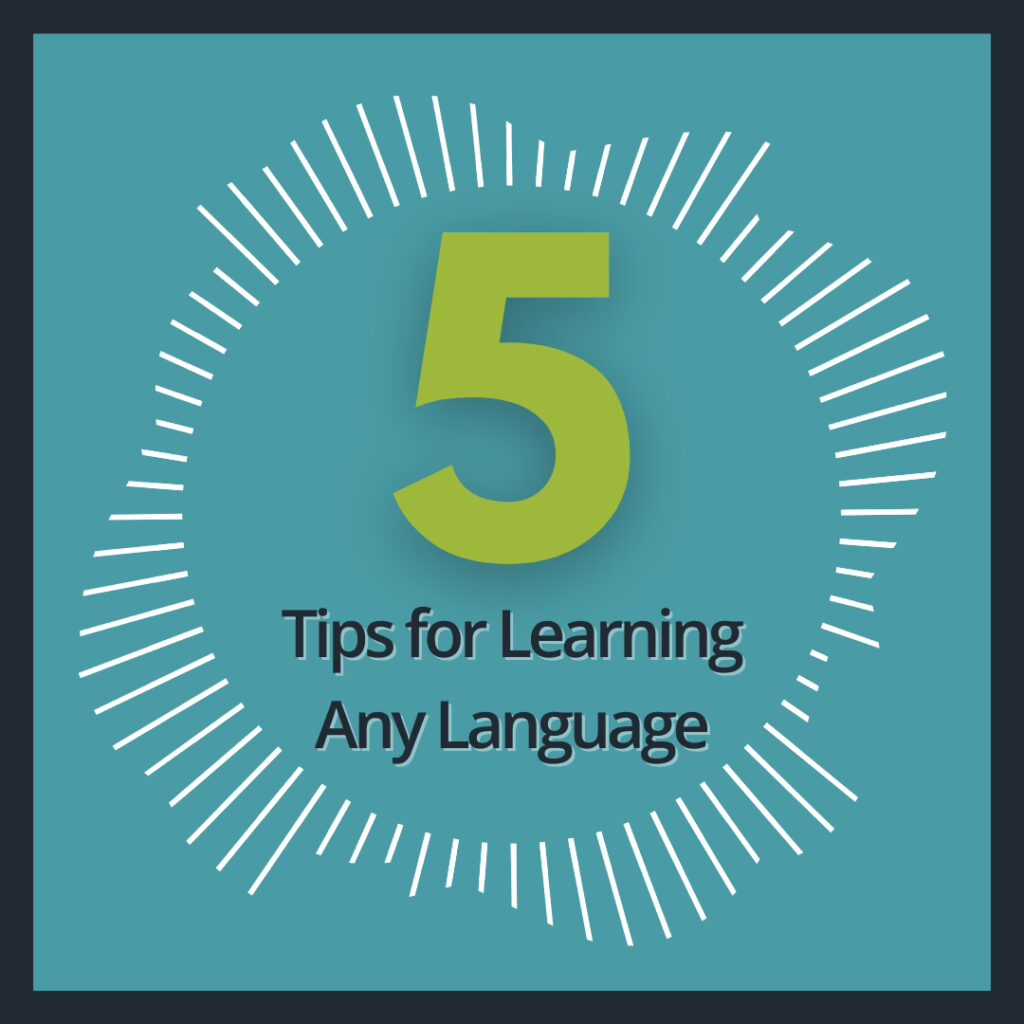5 Acquisition Tips for Learning Any Language
As many of you know, I recently completed my master’s dissertation in linguistics at the University of Birmingham. Over the past three years, I’ve learned so much that I’m excited to share through upcoming podcast episodes and insights from my dissertation research on prepositional errors made by learners of colloquial Arabic across six proficiency levels.
If you haven’t already, subscribe to get notifications for future episodes—we have some very informative content planned!
Tips for Any Language Learner
In today’s episode, I want to broaden our focus beyond Levantine Arabic and offer five actionable tips that apply to learning any language or dialect. Share this with friends or family pursuing their own language goals—the advice is universal.
Are you feeling discouraged or unsure how to adjust your study habits? Working with a tutor but unsure which activities could enrich your sessions? Overwhelmed and in need of fresh inspiration? Contact our Customer Care team at Shababeek Center to schedule a 30-minute Language Advising Session with me.
For a very reasonable fee, I’ll help you get your learning back on track. With over 20 years of personal language learning, more than 2,000 learners advised, dozens of facilitators trained, and a decade of coaching language centers worldwide, I’m confident I can give your learning a “second wind.” Remember: every challenging pursuit benefits from a good coach—you’re not alone!
Tip #1: Stop Memorizing Stand-Alone Words
Are you relying on single-word flashcards to memorize vocabulary? Stop. Learning words in isolation can stunt your progress. Words gain meaning from the contexts and collocations in which they occur.
Instead of writing “pain” on a flashcard, write combinations like “sharp pain,” “chronic pain,” or “dull pain.” This approach gives your brain richer information and prepares you to use vocabulary as proficient speakers do.
Tip #2: Connect Language to Physical Reality, Not Translation
In early learning, associate new words directly with objects, pictures, or experiences—not with translations into your first language. Take your tutor to a grocery store or market to learn fruit and vegetable names. Record audio or video clips to review later.
It’s far easier to feel an eggplant while hearing its name than to memorize “eggplant” on one side of a flashcard and بتنجان on the other. Engaging your senses makes the learning experience memorable and boosts retention.
Tip #3: Follow the Natural Order of Language Development
Think about how you learned your first language:
- Comprehension came first. You understood others before you spoke.
- Speech followed comprehension. Only after hearing hundreds of words did you start producing your own.
- Reading and writing came much later.
Don’t skip ahead. Forcing yourself to read or write at an advanced level before building a strong comprehension base will only frustrate you. Adults can accelerate the process compared to children, but comprehension remains the foundation.
Tip #4: Be Patient and Build Gradually
Language acquisition takes time. You won’t be writing at a university level after six months—pushing too hard risks burnout. Instead, build in sequence:
- Familiarize yourself with everyday objects, verbs, and descriptive words.
- Progress to simple communication.
- Gradually advance to more complex and precise language use.
Avoid exhausting yourself by cramming. Consistent exposure, repetition, and meaningful encounters with the language will take you further than brute memorization.
Tip #5: Linger and Eavesdrop—Observation Is Key
One of the most underrated strategies is simply lingering in places where native speakers interact. Browse slowly at the market, let others go ahead in line, or spend extra time at the pharmacy or bank. Observe and eavesdrop on authentic conversations.
For example, while buying figs, I let an elderly woman go ahead of me. She asked the vendor, “How much are these dates per kilo?” and remarked, “That’s too expensive. Give me a kilo, but I want to pick them myself.” I repeated her phrases silently to internalize them for future use.
Spending even five extra minutes in these settings helps your brain recognize which phrases are practical and relevant. Find excuses to visit local shops—barbers, nut sellers, or florists—to soak up real-world language.
Conclusion: Keep Learning, Stay Inspired
That’s all for this episode of Tips for Learning Levantine Arabic—but these strategies work for any language. Share this with your friends learning their second, third, or fourth language. And don’t hesitate to contact us for personalized advice or creative strategies tailored to your proficiency level.
Every stage of learning requires new approaches as you grow into a “new you.” Keep observing, practicing, and most importantly—enjoy the journey!






